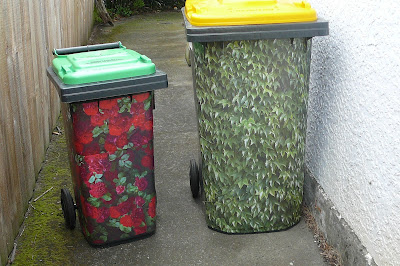EQC, floor levels and (in)competency
Yesterday Radio New Zealand (here) ran an item where EQC was accused of:
“employing unqualified surveyors to measure how level floors are - using inadequate measuring methods - and thousands of houses are being wrongly assessed.”
To this EQC spokesman Bruce Emson, said:
“the commission's surveys are carried out by suitably qualified quantity surveyors and comply with all building and housing guidelines.”
Where does the truth lie? The two times our house was assessed, EQC used bog-standard builders to determine the state of the house. The first builder didn’t know how to use the laser level he had brought with him, and it took him nearly 30 minutes to get it operational. Once operating he measured only the easily accessed bits, despite offers to move furniture for him. This experience does not exist in isolation, so how can others know whether their property was accurately assessed by someone suitably qualified for the job?
The first thing is to deal with the semantics of the EQC response. What exactly is meant by “suitably qualified quantity surveyors”? To me it is an response designed to mislead the public by confusing the issue.
The criticism is that EQC has not had critical measurements made by professional surveyors – people trained in accredited institutions and professionally certified as competent to measure distances, heights, and slopes. In reply EQC have, for some time, responded that they always use suitably qualified quantity surveyors. Herein lies the deception.
EQC claims to uses quantity surveyors. Quantity surveyors are not highly trained to make accurate survey measurements, their training is in costing repairs and rebuilding projects. They are not suitable people to measure floor levels. Not only that, but EQC are also coy on what is meant by “suitably qualified”. Does this mean that they are members of the New Zealand Institute of Quantity Surveyors? Unlikely, as the Institute only has about 150 members in the whole of New Zealand (see their website here). So maybe “suitable qualified” means something less formal - they have undertaken short EQC in-house or contracted training and that is good enough for the job?
In the absence of clear evidence from EQC, it is valid and essential to act on the basis that until proven otherwise unsuitable people were involved in making assessments about your house. Your current and future housing wellbeing is quite likely in the hands of people with inadequate and unaccredited training and no professional qualifications.
How to find out? Maybe the OIA? I appreciate that EQC are gaming the OIA system, and the Office of the Ombudsman seems to have neither the motivation nor the courage to challenge them head-on, however the OIA does provide one means of determining whether your assessment was carried out by a suitably qualified person.
Using the OIA it would be reasonable to ask for a copy of the trade and/or professional qualifications held by the person who carried out the assessment(s) on your house. EQC will be tempted to use the privacy sections of the OIA to deny the request, however the whole purpose of trade and professional certification is to provide a public notice that the person awarded the certificate is suitably qualified for the work. Equally important, the whole process is also designed to warn that someone without the trade or professional certification is unfit or even prohibited from carrying out the work.
There is no absolute provision under either the OIA or Privacy Act that prevents the disclosure of who carried out an assessment, nor what their formal qualifications and trade or professional certification or accreditations are.
EQC and other agencies often seek to protect the privacy of natural persons, however there is no necessity for EQC to withhold the identity of the person who carried out an assessment. Unless someone works for the SIS it is not an offence to make known the name of an employee. As the assessors are carrying out their claimed trade, and in most cases as contractors, there are no compelling individual privacy issues. The assessor may wish to remain anonymous however that is not a compelling reason in itself.
It is an issue of significant public interest to know who is involved in carrying out assessments, especially if in the view of the public there are doubts as to the quality of the work being carried out and/or the calibre of those making the assessments.
As a final point, trade and professional certification is a matter of public record (in the public domain) and so would fail the tests required to withhold the information. Of course EQC could claim not to have kept such records, which would be another indicator of their lack of integrity as an organisation.
A second option may be available for those who are happy to pour a bit more money down the gaping maw of their solicitor. Where EQC maintain that a proper assessment was done, but refuse to release specific information, they could be asked to provide a Statutory Declaration to the effect that properly trained and professionally recognised personnel were used in all assessments of the property. Failure to oblige would be a sure sign of guilt.
